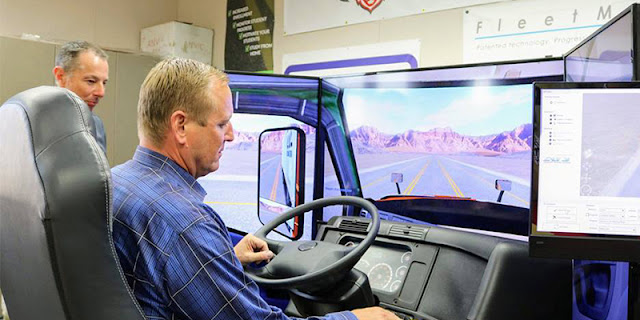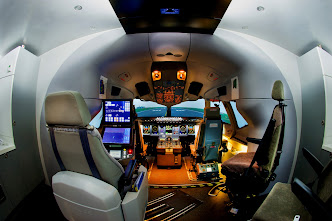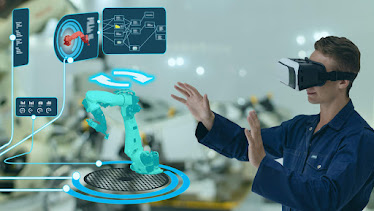How Does a Driver Training Simulator Work?
A driver training simulator
offers a comprehensive learning experience for drivers. Driving schools,
vocational training institutes, automotive research centres and logic. Transportation
companies rely on these simulators to train both novice and experienced
drivers. The simulators offer training solutions for those who are required to
drive SUVs, vans, trucks, tankers, motorcycles etc.
The job of a
simulator is to create a virtual environment and help people learn driving
skills with the support of appropriate hardware and software. A driver training simulator
feels just like an actual car. It has realistic controls like steering wheel,
pedals, switches, pedals, indicators, and brakes. The simulators can train you
for both left hand and right hand driving depending on the country you are
going to drive in. Large corporate and government licensing authorities can
avail the services of driver training and testing centres to enhance the skills
and knowledge of drivers.
How Does
it Work?
A driver training simulator
has multiple hardware and software features that enable drivers to get a
realistic driving experience. Let us look at the software features one by
one.
Terrains
You may have to drive through different roads and conditions that
challenge your skills in real life. In order to equip you with the skills
needed to tackle challenging situations, a driver training simulator
recreates scenarios and terrains for you to practise. You can drive through
highways, freeways, city roads, residential areas, mountains etc with these
simulators. The simulator will also train you to adapt to weather conditions
like fog, snow or rains. Before you take your vehicle out, you are well
acquainted with the possible situations that may arise while driving.
Modules
There are training
modules embedded in the system to accommodate both advanced and novice drivers.
Beginners can use the basic training module that helps them understand the
vehicle controls. Experienced learners can further polish their skills by
opting for advanced training mode. There are special modules designed
especially for eco driving,
defensive driving, parking, backing, rollovers and emergency driving.
Instructor Software
Each learner has different requirements. The instructor can plan the
training course for each learner depending on whether the person is a beginner
or an advanced learner. The instructor can view the screen of the driver in
real time and judge his /her performance. The instructor can also test the
driver’s skills and obstruct smooth driving by creating hurdles in his way to
judge his response to various driving situations.
Performance Evaluation
The driver
training simulator permits the driver and the instructor to evaluate the
performance after the training session. The simulator generates a detailed
report after each session to help you understand your weak points and work on
improving those areas. You can replay and view your mistakes and rectify it in
the next session.
Group Training
The system supports
group training sessions wherein the instructor can connect multiple simulators
to a single system. It is possible to train drivers together if you want to
save time and achieve results faster.
Also Read: What are Mining Simulators?
Conclusion
Tecknotrove is the number one driving
simulator provider for numerous applications like light vehicles, passenger
bus, ambulance and rehab driving. It develops simulators equipped with a
display and motion system that delivers an immersive experience for drivers.
The company also has simulators with conversion kits to accommodate multiple
vehicle types in the same hardware.




Comments
Post a Comment